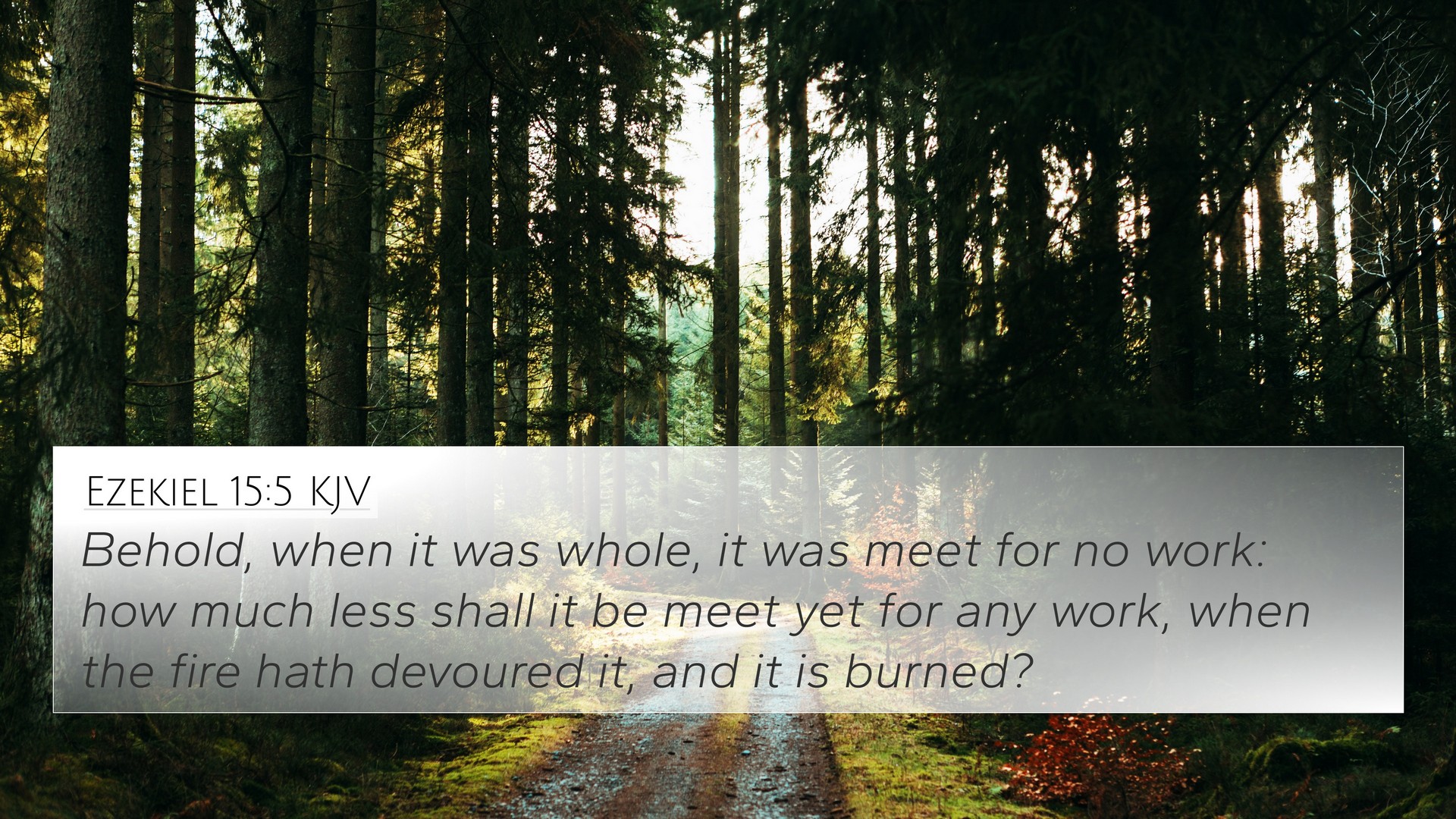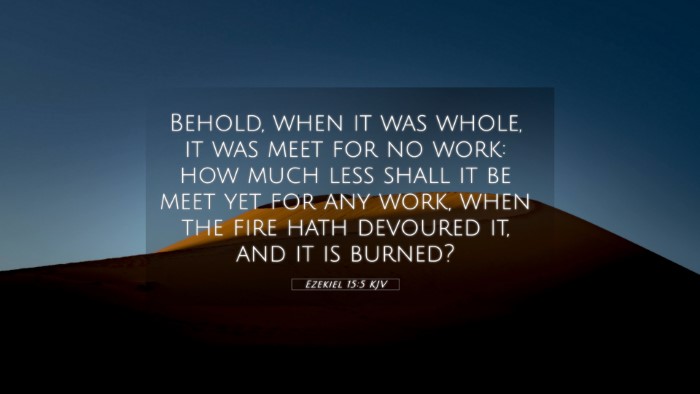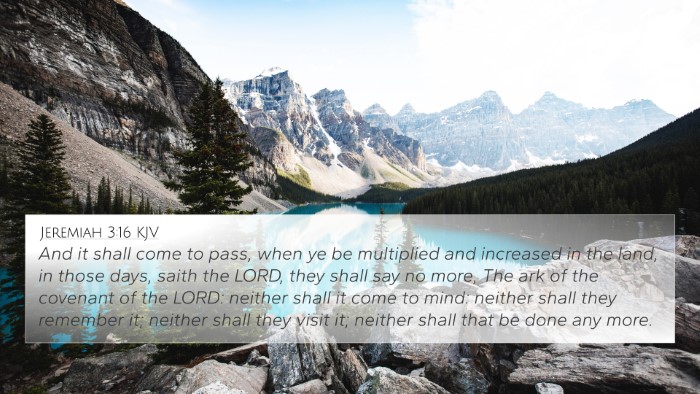Ezekiel 15:5 - Meaning and Interpretation
Ezekiel 15:5: "If it had been cast into the fire for fuel, and the fire devoured it, it was profitable for nothing." This verse uses the metaphor of a vine to illustrate its effectiveness and purpose in God's purposes.
Overview of the Verse
- The passage emphasizes the value and utility of what is used for God's glory.
- It stresses the judgmental theme, relating to the fate of Israel, especially during times of spiritual barrenness.
- It symbolizes the Israelite nation and how they may be rendered ineffective in their purpose if they stray from God's design.
Commentary Insights
Matthew Henry: Matthew Henry highlights that the vine represents the people of Israel, who God nurtured and cared for, yet they became unfruitful. Their unfruitfulness leads to their being likened to the wood of the vine, which is of little value compared to other trees. Thus, the emphasis is on their need for repentance and return to God to regain their purpose.
Albert Barnes: Albert Barnes elaborates on the notion of worthlessness without purpose, indicating that Israel has failed to be a source of life and sustenance. The vine, while it can initially contribute to God’s plan, becomes useless when it does not yield grapes. Barnes encourages readers to reflect on the necessity of genuine relationship with God to avoid judgment.
Adam Clarke: Adam Clarke describes the spiritual decline of Israel, pointing out that their rejection of God's ways has rendered them ineffective. He illustrates the metaphor further, stating that the vine wood is not only unproductive but is also inappropriate for building or lasting use, delivering a clear message about their spiritual state.
Thematic Connections
This verse resonates with various biblical themes such as:
- God's Judgment: Ezekiel 15:5 reflects God's disciplining of His people for their unfaithfulness.
- Spiritual Barrenness: It serves as a warning against being unfruitful in faith and works.
- Restoration: The idea that true purpose can only be regained through returning to God is a recurring theme in scripture.
Bible Cross-References
Below are key Bible verses that connect with Ezekiel 15:5:
- John 15:5: "I am the vine; you are the branches. He who abides in Me, and I in him, bears much fruit; for without Me you can do nothing."
- Isaiah 5:1-2: The song of the vineyard where God reflects on Israel's unfruitfulness.
- Matthew 21:19: Jesus curses the barren fig tree, symbolizing Israel's spiritual decline.
- Jeremiah 2:21: God reminds Israel that they were a noble vine initially planted by Him.
- Romans 11:17-24: Discussion of grafting branches is related to God’s covenant people.
- 1 Peter 2:5: Believers are described as living stones, indicating purpose in God's building.
- Luke 13:6-9: The parable of the barren fig tree highlights the need for repentance and fruitfulness.
Understanding the Importance of Cross-Referencing
Utilizing a bible concordance or cross-reference system allows one to explore the interconnectedness of Scripture. This approach not only provides deeper meanings but also offers a richer understanding of biblical themes:
- The Bible cross-reference guide is essential for digging into the themes present in passages like Ezekiel 15:5.
- Through scriptural cross-referencing, we can identify connecting verses from different books, such as the Old Testament and the New Testament.
- Engaging in thoughtful comparative Bible verse analysis enhances biblical literacy, giving context to God's message.
Applying Ezekiel 15:5 Today
As modern readers, it’s vital to ask:
- What does it mean to be fruitful in my walk with God?
- How can I avoid the fate of being unproductive, just like the vine in Ezekiel 15?
- Which biblical practices can help me foster a more fruitful spiritual life?
Conclusion
Ezekiel 15:5 serves as a poignant reminder of the importance of being aligned with God's purpose. Through biblical cross-references, we uncover depths of understanding that illuminate God's expectations for His people. By studying these verses together, we find unity in God's narrative and our role within it.



